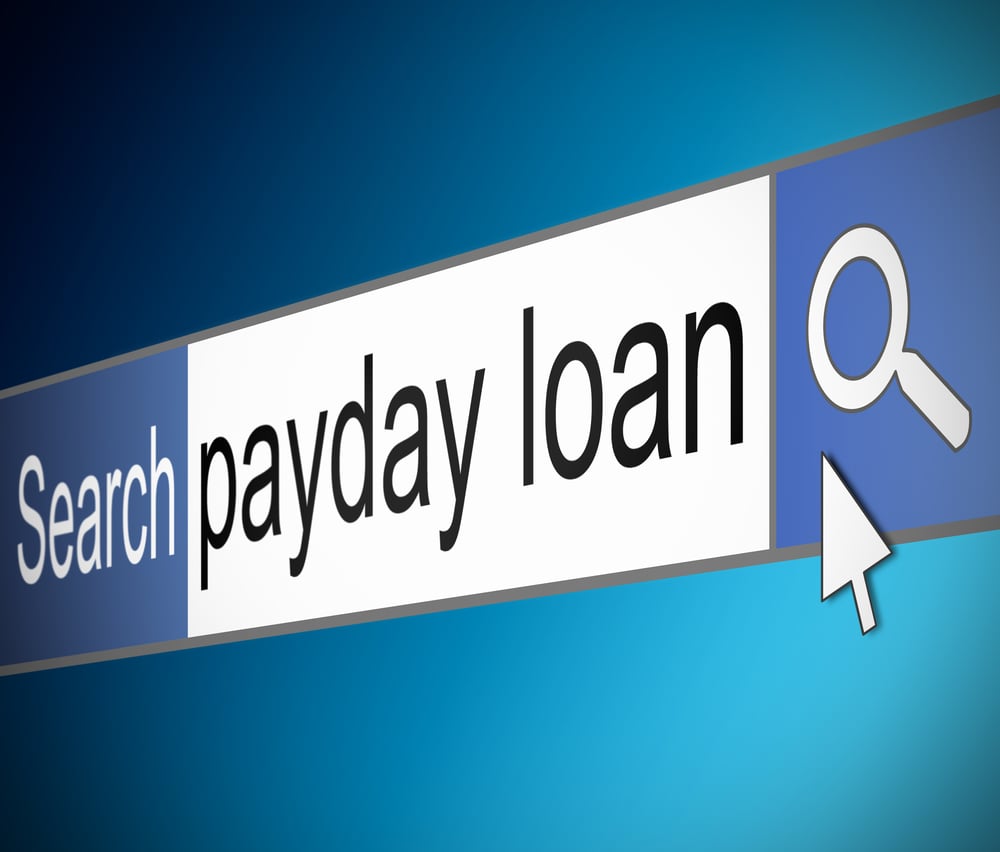
What Is The Reality About Payday Loans?

Payday loans are short-term advances that are given by private lenders while charging high-interest rates. The money lent is generally in the region of $500 or less, and the borrower is required to return the payday loans when he or she receives their paycheck. Payday loans offer quick cash infusions when you require money to meet an emergency. However, in many instances, consumers receive more than they had bargained for.

fizkes/Shutterstock
According to the Consumer Financial Protection Bureau, lenders issue payday loans in small amounts, but they receive access to the borrower’s checking account in return or require the borrower to issue a postdated check for the money borrowed. The lender deposits the check when the due date of the loan approaches. Payday loans usually come at exorbitant rates of interest, which can be as high as 400%. Before entering into a payday loan agreement, you should exercise caution and read the fine print before signing the loan agreement.
[su_quote class=”cust-pagination”]
“Payday loans are but one of many financial techniques – from overdraft fees to student loans subsidizing for-profit colleges – specifically designed to pull money from the pockets of the poor. This problem generally goes unrecognized by policy makers.”
[/su_quote]

Sam72/Shutterstock
What Are Payday Loans?
Payday Loans have several names. They are also referred to as cash advance loans, check advance loans, deferred deposit loans, and post-dated check loans. They also come from various sources. You can walk into the store of the lender or even make an application online by providing information such as your age, your residential address, your Social Security number and the number of your bank account. You can request the amount you need and agree to pay the fee for the loan, and the amount is usually transferred to your bank account within a short time.
Any person who is capable of returning the money on the given date can borrow payday loans. Failure to repay can bring difficulties on the borrower in the form of penalties and exorbitant additional financial charges. Payday loan lenders do not conduct any credit checks on borrowers and are willing to offer the money as long as they have the information they have requested for. However, they can also be tough when one defaults.
Why Are Payday Loans Expensive?

Tekkol/Shutterstock
As mentioned earlier, payday loans come at exorbitant interest rates that can range from $15 for every $100. The cost of the borrowing is high because of the short term for which the money is lent. Borrowers usually seek the loans when they are in need of short-term cash to repay once they receive their paycheck. However, many people have become habitual offenders of payday loans and are borrow payday loans frequently. Today, nearly 12 million Americans get payday loans every year simply because anyone with a checking account and a steady income can borrow a payday loan. These loans are highly popular among people who do not have access to credit cards or savings accounts.
[su_quote]
“The Pentagon got fed up with its recruits getting ripped off by payday lenders and in 2007 got Congress to make it illegal to extend such loans to members of the military. But civilians remain fair game.”
[/su_quote]

Hananeko_Studio/Shutterstock
Should You Consider Applying for Payday Loans?
Payday loans are definitely helpful if you are dealing with a medical emergency and need to raise finances in a hurry. However, they are not beneficial if you need cash for unnecessary expenses. If you have to get cash to repair your car, only use a payday loan if the vehicle is indispensable to your needs. Otherwise, you should depend on public transport until you receive your paycheck and then repair it.
To determine whether you have to apply for a payday loan, consider all the other available options and use payday loans only as a last resort. You wouldn’t want to get into trouble by borrowing money at high interest rates. Therefore, keep off from such loans.
More in Loans & Mortgages
-
Why American Consumers Are Falling Behind on COVID-Era Debt
When the world was grappling with the health crisis brought on by COVID-19, the U.S. economy faced an equally formidable challenge:...
November 27, 2023 -
Dr Dre and Ex-Wife Nicole Young Finalise $100m Divorce Settlement
After months of legal proceedings, Dr Dre, the legendary rapper, producer, and businessman, officially brought his tumultuous divorce from ex-wife Nicole...
November 22, 2023 -
5 Tell-Tale Signs That It Is Time to Say Goodbye to Your Current Job
Are you feeling like your job is more like a ball and chain than a fulfilling career? The daily grind, the...
November 19, 2023 -
WWE Signs $1.4 Billion Broadcasting Contract for SmackDown
In an explosive turn of events, World Wrestling Entertainment (WWE) has just unleashed some earth-shattering news for its legions of fans....
November 9, 2023 -
Navigating the Mortgage Maze as Interest Rates Take a Historic Leap
The U.S. housing market is nothing short of a dynamic entity. It evolves, reacts, and sometimes, just like the current real-estate...
November 3, 2023 -
Celebrity Couples Where the Woman Has a Higher Net Worth
In a world where gender roles and financial dynamics constantly shift, it’s not unusual to find celebrity couples where the woman...
October 27, 2023 -
Why the Gender Pay Gap Could Be Worsening
Picture this: Two college students, Alex and Charlie. Both are bright, have the same interests, and are ready to embrace the...
October 19, 2023 -
JC Penney’s Remarkable $1 Billion Revival Plan
In a remarkable turnaround, JC Penney unveiled a bold $1 billion revival plan, breathing new life into a brand that faced...
October 12, 2023 -
Shattering the American Dream: Mortgage Rates, Inflation & Cost of Living
You know that feeling when you are dreaming of something you have wanted for so long, only to watch it vanish...
October 6, 2023















You must be logged in to post a comment Login